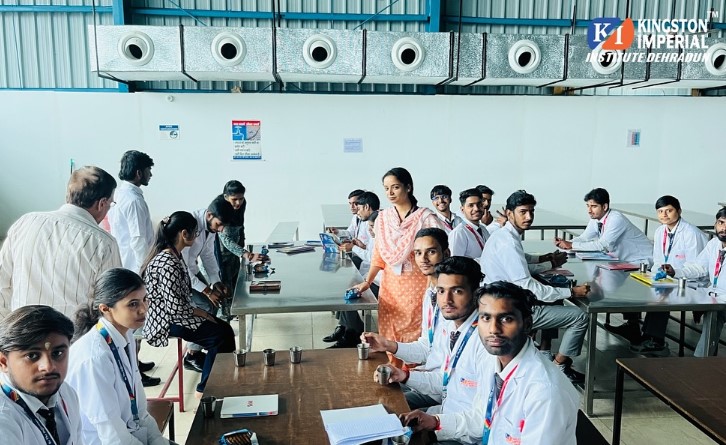Microbiology is the study of tiny living things called microbes. These include bacteria, viruses, fungi, and more. Though these creatures are too small to see with our eyes, they play a very big role in our world. Some microbes help make medicines, clean up waste, or even help us digest food. Others can cause diseases. That’s why studying microbiology is important—it helps us understand the good and bad sides of these tiny organisms.
If you’re planning to take a B.Sc Microbiology Course in Uttarakhand or anywhere else, you might be wondering what skills you’ll need. This course is not only about reading books and passing exams. It’s also about learning how to work in labs, think clearly, and stay curious.
Here are 7 essential skills every microbiology student should have or work to build.
1. Observation Skills
One of the most important skills in microbiology is observation. In this field, you often work with tiny organisms that you can only see through a microscope. You’ll need to notice small changes—like how fast something grows or how it reacts to different chemicals.
For example, if you’re growing bacteria in a lab, you must observe the color, shape, and size of the colonies. These details can help identify the type of microbe. If you miss even a small change, you might get the wrong results.
How to build this skill:
- Practice paying attention to details in daily life
- Ask yourself “what changed?” in every experiment
- Take notes of what you observe
2. Patience and Focus
Working with microbes can take time. Some experiments last hours or even days. Waiting for results can be hard, and sometimes you may need to repeat things more than once. You also need to stay focused while working, because one small mistake can spoil your work.
How to build this skill:
- Try meditation or breathing exercises to improve focus
- Set a timer to study or work without distraction
- Understand that slow progress is still progress
3. Cleanliness and Safety Awareness
Microbes can be helpful or harmful. That’s why you must keep yourself, your tools, and your workspace clean. Clean work helps you stay safe and gives better results. You will also learn how to dispose of materials the right way to protect others and the environment.
How to build this skill:
- Follow all lab rules strictly
- Wear proper lab gear like gloves and coats
- Always clean your hands and tools before and after lab work
4. Problem-Solving Ability
Not everything in microbiology will go as planned. Sometimes your experiment may fail. Maybe the bacteria didn’t grow, or maybe the result was unexpected. In such cases, you’ll need to figure out what went wrong and how to fix it.
Being a good problem-solver means thinking step by step and staying calm under pressure.
How to build this skill:
- Ask “why did this happen?” instead of feeling upset
- Talk to your teachers or classmates for ideas
- Learn from your mistakes instead of fearing them
5. Curiosity and Willingness to Learn
Microbiology is a field that’s always changing. New types of microbes are discovered, and new methods are developed all the time. If you stay curious and keep learning, you’ll do very well in this field.
Curious students ask questions, do extra reading, and explore topics even outside the classroom. That curiosity can lead to great discoveries and career growth.
How to build this skill:
- Watch science videos or read simple articles about microbes
- Keep a “question diary” to note down what you want to learn more about
- Join science clubs or attend small workshops
6. Good Communication
Even though microbiology involves working in labs, you still need to explain your ideas clearly to others. You may have to write reports, give presentations, or talk about your work to classmates or teachers. In the future, you might work in a hospital, lab, or company where good communication helps you work better with your team.
How to build this skill:
- Practice writing short reports or summaries in simple words
- Take part in group discussions or presentations
- Learn to listen carefully and speak clearly
7. Teamwork
In microbiology, you’ll often work in groups—whether during experiments, research projects, or assignments. You’ll need to listen to others, share responsibilities, and solve problems together.
No matter how smart you are, working with others will help you learn faster and more deeply.
How to build this skill:
- Be kind and respectful in group activities
- Take turns and help others when needed
- Understand that everyone has something valuable to offer
Why These Skills Matter
Having these 7 skills will not only help you during your B.Sc Microbiology studies but also in your future job. Whether you work in a hospital lab, a food testing center, or a research facility, these skills will make you more confident and successful.
Many companies and hospitals today are looking for students who are not only good in studies but also responsible, careful, and team players. That’s why it’s important to develop these qualities early on.
Final Thoughts
Studying microbiology can be a fun and rewarding journey. It helps you understand a hidden world that affects all of us. By building strong skills like observation, patience, problem-solving, and communication, you’ll be ready to take on exciting roles in healthcare, research, and beyond.
If you are thinking of enrolling in a B.Sc Microbiology course, start working on these skills today. They will help you not just pass your exams, but also become a successful microbiologist in the future.
About KIIMS
Kingston Imperial Institute of Medical Sciences (KIIMS) is a reputed paramedical college located in Dehradun, Uttarakhand. KIIMS offers top-quality courses including B.Sc Microbiology, BMLT, Radiology, Nursing, and more. With modern labs, experienced teachers, and personal attention to every student, KIIMS helps you grow your skills and prepare for a bright future in healthcare.
Also read: https://www.kiims.in/common-mistakes-ot-students-should-avoid-in-training/
 :
https://in.pinterest.com/kiimsdun/
:
https://in.pinterest.com/kiimsdun/

